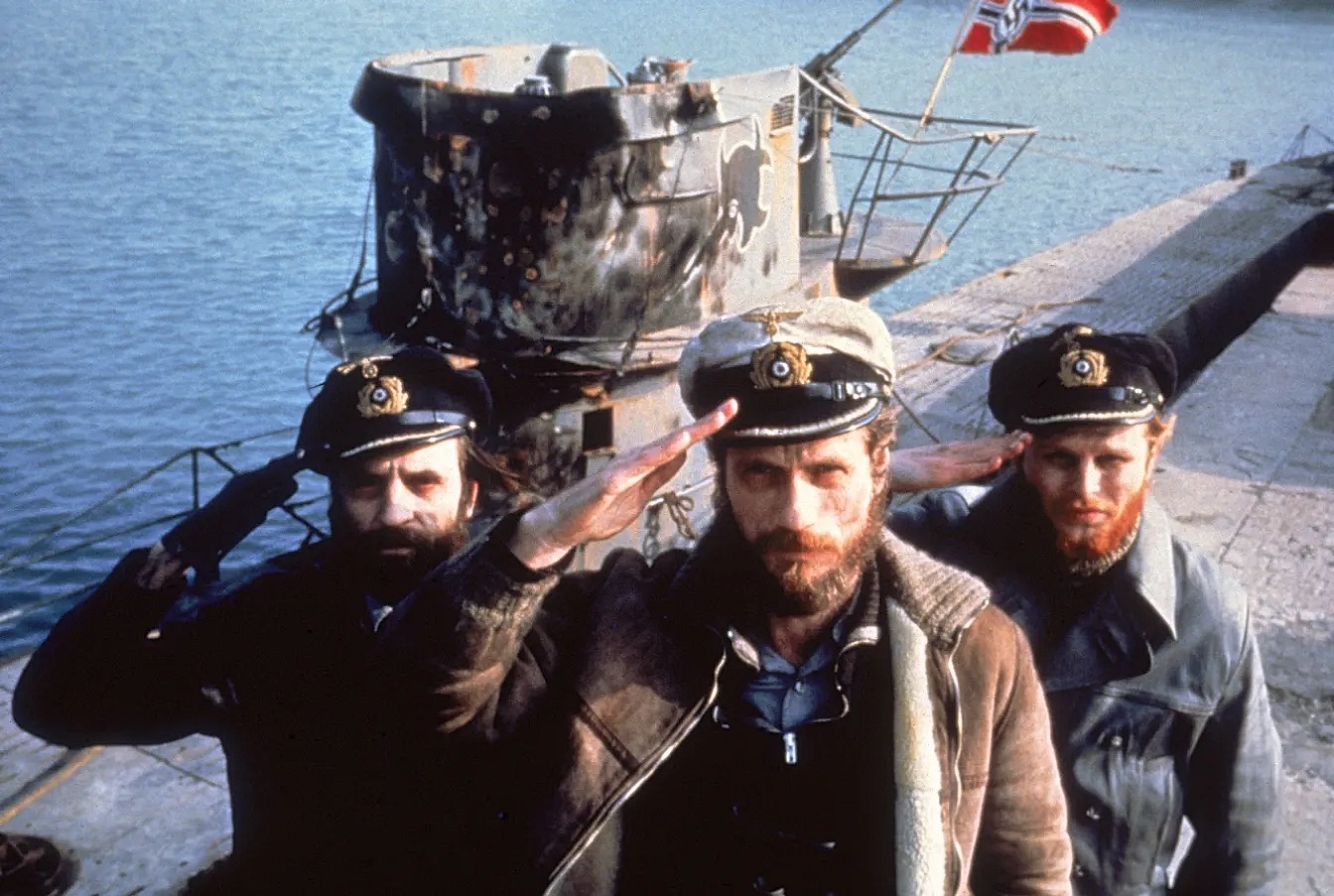
- Film
In Honor of Wolfgang Petersen – “Das Boot”: The Journey Began 40 Years Ago
Wolfgang Petersen, the German director whose film credits include Das Boot, a 1982 Golden Globe nominee for Best Picture — Non-English Language (formerly Foreign Language), died in his house in Brentwood, Los Angeles, on Friday, August 12, 2022. He was 81. The following is a re-post of a piece marking Das Boot‘s 40th anniversary.
40 years ago, when Wolfgang Petersen’s U-Boat film Das Boot was released in Germany, it raised a storm. The critics shouted, “Glorification of war”, “White-washed depiction of Hitler’s war machine”, while its admirers said it was “The most powerful antiwar movie ever”.
With the passing of time, of course, there has been a reappraisal and now Das Boot is fondly considered, in general, to be a masterpiece.
Based on the 1973 bestselling book by the same title, the story is a somewhat fictionalized autobiographical account by the German author Lothar-Günther Buchheim who served as a war correspondent on the U-Boat U-96 during the infamous “Battle of the Atlantic” in 1941.
That same year Wolfgang Petersen was born in Northern Germany, baptized with the waters of the Atlantic, as he proudly liked to claim. After some success in directing German film and TV projects, he took on the adaption of Buchheim’s book. The film was awarded the Golden Camera Award in Germany and was nominated for a Golden Globe as one of the best non-English language films of 1982.
Das Boot started Wolfgang Petersen’s journey to America, leading to a celebrated career in Hollywood with hits such as In the Line of Fire, Airforce One, Outbreak, Troy and another ship-in-peril drama The Perfect Storm.
While tackling the adaptation of the book into a film or TV project, Petersen became aware of some serious obstacles. Buchheim’s wrote the initial script, but Petersen rejected it as unshootable and finally rewrote himself, causing all kinds of personal and legal headaches for both men.
There were almost insurmountable cinematic challenges (especially at a time before the advent of CGI):
- How to shoot in the extremely confined windowless space of a submarine where you can never see into the distance, where your only reference points are walls of metal, pipes, valves and equipment, all painted in a tired gray .
- How to simulate high alert by moving the camera in a rapidly continuous shot through all the narrow hatches dividing the ship’s interior .
- How to shoot the crew, sardine-like crammed together without room for lighting and pans.
- How to recreate under those circumstances convincingly a claustrophobic cauldron of sweat and fear.
With the help of DP Jost Vacano on his side, Petersen took on the challenge, but it was not cheap. All of the essential parts of the boat had to be built separately with removable walls to allow camera movement. At one underwater shoot the large elaborate boat model leaked and sank to the ocean floor, a hugely expensive drain on the budget. Das Boot became Germany’s most expensive film to date.
One of its most outstanding achievements, exemplary for so many U-Boat films to follow, was the sound – an emotionally supercharged cacophony created by men and machine.
The submerging of the boat caused increasingly sharp crackles from its outer skin, stressed by the massive pressure at the depth of the ocean. The boat groaned like a tortured primal animal. The sonar’s relentless high-pitch “ping, ping” pulses were like stabs on a raw nerve signaling an advancing death threat.
Then there is the crippling silence: all you hear is the muffled engine of the enemy warship right above you. The men look up as if to watch the water bombs on their way down. The men and the cinematic audience are either in a life sustaining bubble, safe in the dark below, or in their/our own steel coffin.
That’s the entire story of the film: Their command was to hunt. Now they were hunted. There is just a boat filled with men, occasionally sea shanties. No love scenes. No women. No happy end.
The late critic Roger Ebert insightfully observed after seeing the film: When we see an American war movie, we see the protagonists as American heroes and we know we’ll win in the end. Since this crew is German this point of view is obsolete. We suddenly see them as human beings.

